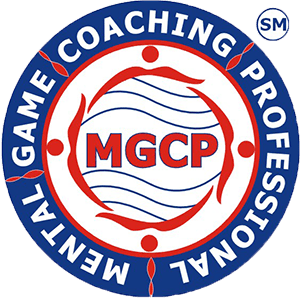In this Mental Coach Mentoring video, Dr. Cohn answers the question: “How do I find athletes to work with?”
This is a common question from newly certified MGCPs after taking the Mental Game Coaching Certification Program. What are your first steps as a mental game coach after certification or coming out of school? What do you need to do to gain credibility?
Return to Mental Coach Mentor Videos
Transcript:
Hi, this is Dr. Patrick Cohn with the MGCP Certification Program at Peaksports.com. Today I’m going to talk about a very interesting topic that all the MGCP students want to hear about, and that is how to get work with athletes.
0:17 You go through the certification process, and then, okay, what do I do now? I’ll see you how do I find athletes to work with?
0:25 In this video, I’m going to give you a preview about how I teach MGCPs in the course to get work with athletes.
0:33 So, step number one is all about gaining credibility.
0:39 Gaining credibility as a mental coach. If you haven’t done a lot of mental coaching, then that’s step number one. Well, how do you gain credibility?
0:49 You gain credibility by doing good work with athletes. It’s that simple. Athletes will champion for you when you help them raise to the next level or get on the starting squad, for example, or get a scholarship.
1:06 Often parents will champion, uh, for us as well. I like to tell this story about a motocross racer I worked with.
1:13 I started with him in 2004. Around the time I started the certification course, his name was Matt Bonney. Matt was struggling with some of the top racers in his field.
1:25 And looking at them, putting them on a podium or putting them on a pedestal ahead of him. event, I was able to help Matt win a national championship and more, uh, through the mental health program.
1:36 Coaching and his dad was very vocal about telling others about my services. So that’s instant credibility when I have the athlete’s dad telling others that I helped his son, uh, championship.
1:53 Win a national championship. Now, that’s hard to come by, but ultimately, if you do good work with one high school athlete, one junior athlete, and that junior athlete goes on and wins a tournament, for example, and partly they credit you.
2:10 We don’t like to take credit, but partly they acknowledge you for your help in that. Well, that’s instant credibility. That’s doing good work.
2:18 Doing good work with athletes, and I’m here to tell you that’s way more important than having a Ph.D. in sports psychology, for example.
2:28 It’s, what have you done for others? That’s the number one question that we get from sports parents is, who have you worked with?
2:36 Uhm, how have you helped them? Uh, what level of athletes have you worked with? But you have to start somewhere.
2:42 So, having others champion for you, and asking for those referrals, uh, from your athletes. We usually recommend that you work with athletes within your inner circle.
2:54 Maybe you have other parents, they have athletes, and you could start there. Uh, maybe you, have coaches.
3:06 That, maybe you’ve competed with, for example. Uhm, they have athletes you can work with, but it’s a great place to start to work in your inner circle with athletes, uhm, to be able to have them start that champion process for you.
3:23 And, in essence, you have to donate your time. Uhm, early on in my career, I donated my time to doing a lot of seminars.
3:30 With a very targeted population. That targeted population was mini-tour players. That’s young golfers that are trying to make it on the PGA Tour.
3:41 Great population to work with. Uhm, and in variable, what would happen is I would get one or two athletes that would come and work with me, as well.
3:50 I was lucky in my career, uhm, because, I knew a guy named EJ Pfister, uhm, from my hometown of East Aurora, New York.
3:59 And what had happened was, uh, EJ went to Oklahoma State and became, became, uh, NCAA Champion his last year, and then he turned pro, and I went with him to the New York State Open, and he won his first professional tournament at the New York State Open.
4:15 Uhm, I was lucky from that perspective, because I had very high-level golfers, uhm, in my hometown, and was able to work with those particular golfers.
4:26 And that’s kind of where I started. And, basically, EJ, his dad was a friend of the family, and I introduced myself to his dad.
4:34 His dad said, yeah, my son could use your help. Uhm, and, and then EJ introduced me to other golfers, like Brian Watts, for example, who, uh, finished second at the, uhm, British Open one year, as well.
4:47 So, uhm, sometimes it’s being in the right place, at the right time, but start by tapping your inner circle, and then gaining credibility with your inner circle, and getting testimonials, if you’re not a psychologist.
5:02 Getting testimonials that you can use in your marketing materials, but certainly you have to get their permission. Okay. I hope that helps, and I hope to see you in the next course.
5:14 Thanks.

